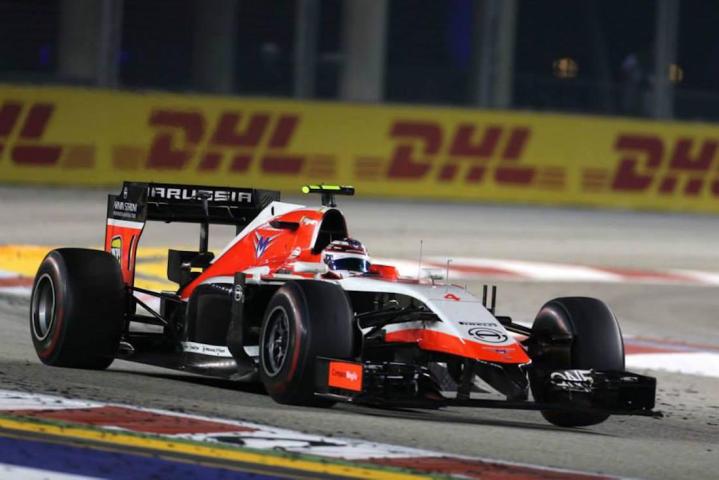
In a report posted on the official F1 website, the team will start the season with an interim machine, something cobbled together primarily to meet FIA regulations. This at least gets them on the track and participating while they work on a more competitive car that they’ll introduce as the season progresses.
With this in place, the FIA formally approved their application to compete, something that looked nearly impossible a couple months ago when the company was in bankruptcy administration and begun to liquidate team assets. A principal investor, now revealed to be Ovo Energy founder Stephen Fitzpatrick, pulled the team from the brink.

Fitzpatrick allowed Marussia to avoid the fate of Caterham F1, a team which suffered similar financial issues, but failed to find rescue.
Despite all this official officialness, Marussia isn’t listed on the F1’s page of participating teams as either Marussia or their new name, Manor F1. As of yet, only one driver for the team has been announced, former reserve driver Will Stevens.
We’re glad to see things come together for the team, albeit hastily, in time for things to kick off at the Melbourne Gran Prix on March 15th and will be intrigued to see what the outcome of this off-season drama will be. Heck, as long as they’re pulling miracles of their hat, they might surprise us by scoring more than a couple points this season.


